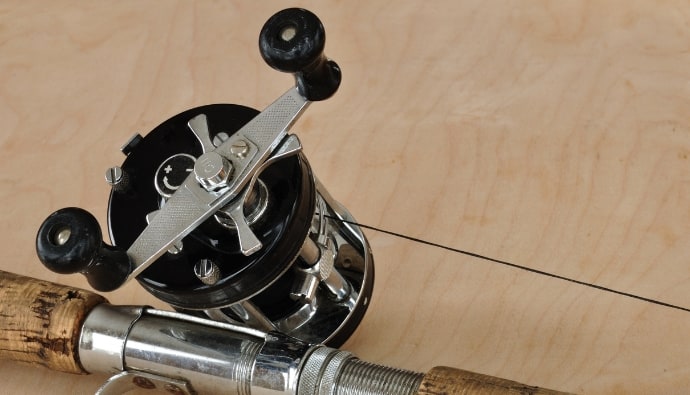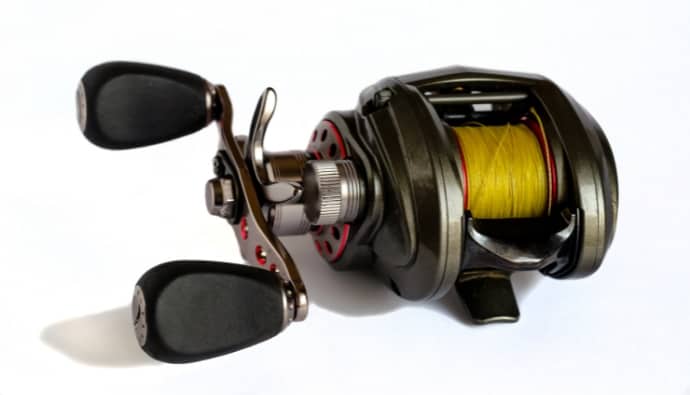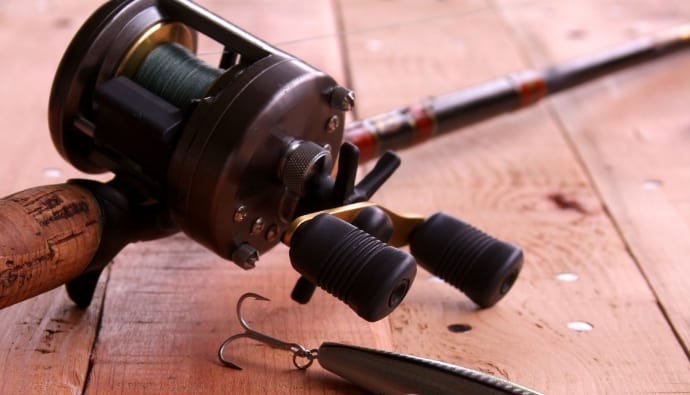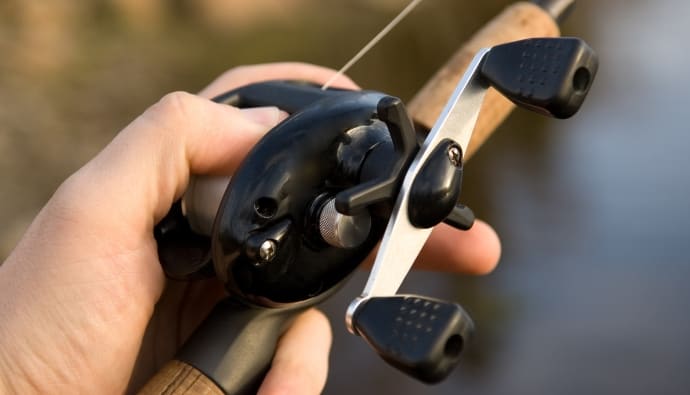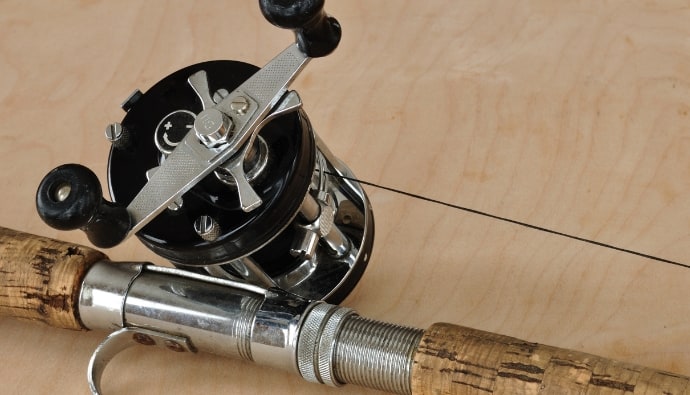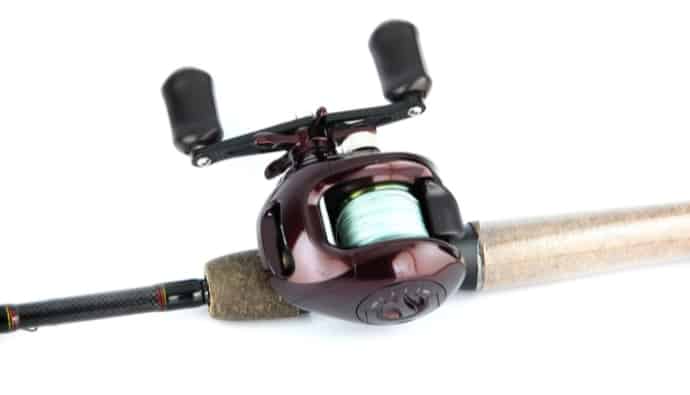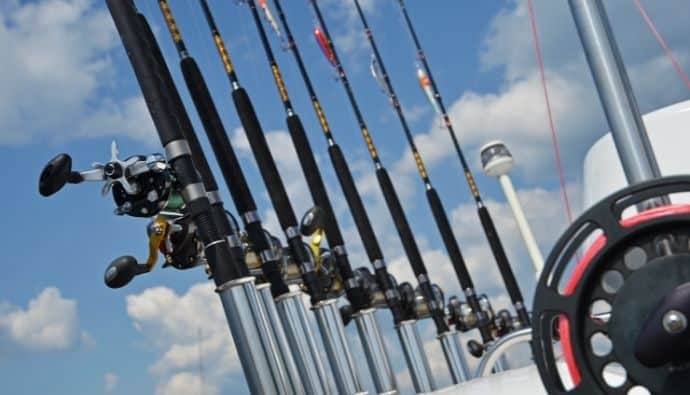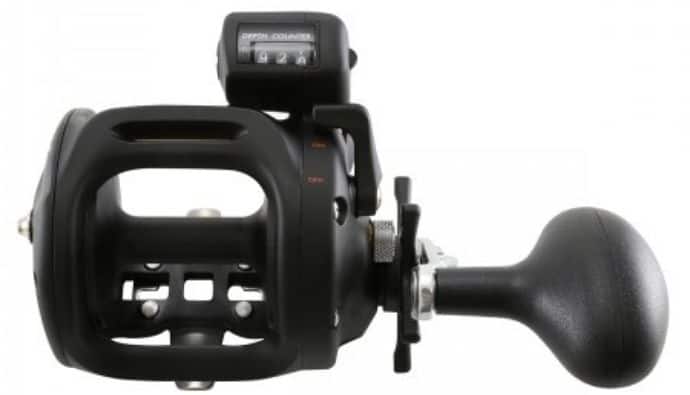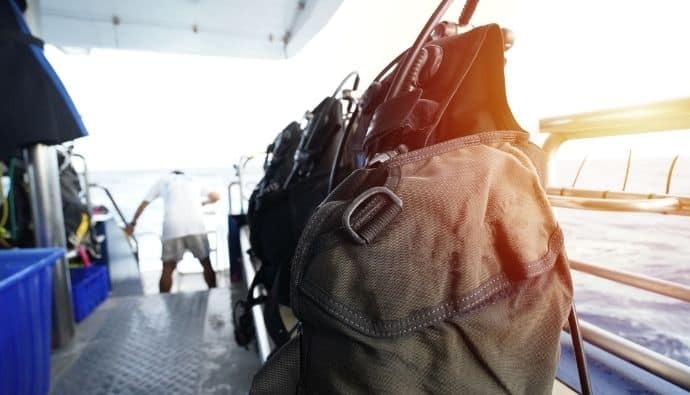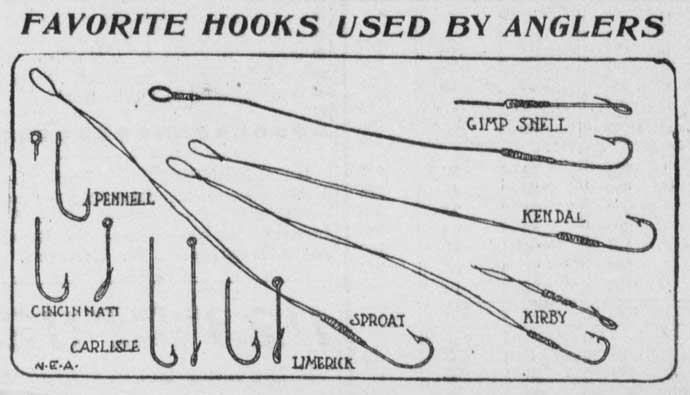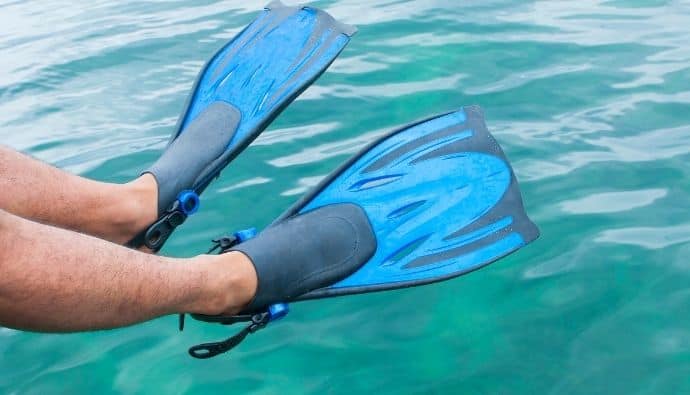When it comes to saltwater fishing, whether you are fishing inshore flats, jetties, or on a charter, a saltwater spinning reel outperforms most if not all conventional saltwater reels…
5 Best Saltwater Spinning Reels for 2023
Penn Slammer III
[amazon box=”B01IDEP4G4″]
The nice thing about the Slammer III family is that Penn did a good job of designing a reel to keep the saltwater out. It has an IPX6 water resistance rating which means even if you spray the reel with forceful water. It’ll be fine.
This rating doesn’t mean you should go and submerge your reel in saltwater.
Penn states that it’s completely sealed and should be able to handle whatever the surf throws at you. Just don’t go swimming with it.
The smaller 3500-5500 sizes have automatic bails, but the bigger ones are manual.
A solid workhorse for you saltwater enthusiasts.
Daiwa SS Tournament
This is what Sean Woodburn calls
My first choice and best bang for the buck in regards to long range casting reels.
It was designed with long casting in mind and even though it’s older it still holds up just fine for your fishing needs. It’s practically indestructible, and you can catch nearly any fish on it.
This reel has lots of records on it and is still being used in the long-cast community. It’s been around for 30 years so if you believe that longevity matters, then you need to add this to your arsenal ASAP.
Diawa Saltist 4500
[amazon box=”B01K1JSLFK”]
It’s hard for us to choose between the Saltist and the BG, but if you want to try something a little more unorthodox, this is a great workhorse reel. It can stand up to abuse.
I know a guy who has been a Shimano fan his whole life and decided to give this reel a shot. He loves the Stradic but hates the cost. After using this reel for a year, he still thinks it’s a solid value. It might be the best reel under $300.
Van Staal VS
[amazon box=”B00TNSO4TS”]
These reels are one of the most popular for striper fishing on the East Coast. They are lightweight reels and offer plenty of saltwater protection. Plus, their 6061-T6 aluminum housing looks sexy!
They are manual bails, and you can purchase a kit to convert them to bail-less.
VS vs VR
The VS is meant to be able to handle submersion. Some say it also feels like a coffee grinder when you reel it in. If you don’t need a reel that bulletproof, then opt for the VR model because it has a smoother reel and can still handle splashes.
To make it easier to pick, if you’re doing serious surf fishing, go with the VS; otherwise, the VR will make a good reel, especially for your days on the boat.
Shimano Ultegra CI4+
This reel is meant more for offshore and surf fishing. It is able to be cast out far and is strong against saltwater corrosion.
It has a manual bail and will need to be opened and closed by hand. It pairs nicely with a 9-foot rod.
This is great for ocean fishing but isn’t meant to be submerged, so make sure you keep it out of the water except for minor splashes.
Shimano makes some of the best reels around. If you needed to trust one brand, I’d recommend them.
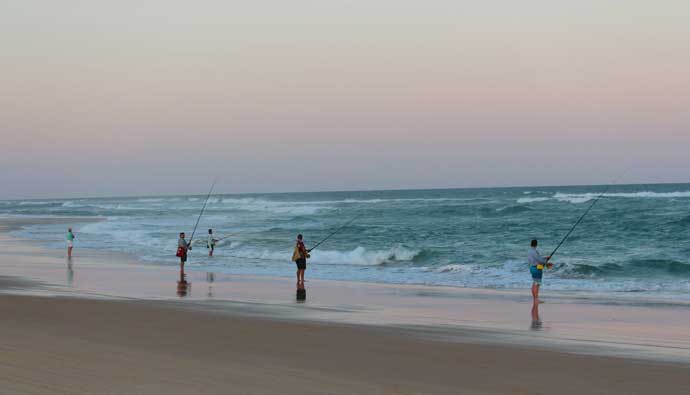
Paired with the right saltwater rod, a pure saltwater setup should last you years and provide endless fishing bliss.
In this article, I am going to cover several different spinning reels. I am also going to cover many of the ways the two differ. So let’s get started and see which one you prefer.
Saltwater Spinning Reels Overview
Saltwater Corrodes
Saltwater will corrode cheaper metals in a short amount of time. Therefore, the best saltwater reels are made from special alloys which will not corrode as quickly.
It’s important to take care of your saltwater reels with more diligence than freshwater reels. That means rinsing them off with fresh water and drying them after each use, and making sure they are lubricated correctly.
Sealed Components
Bearings, gearboxes, and drag systems, among others that are sealed, are not as vulnerable to saltwater-induced corrosion.
The seals used a function like gaskets and keep saltwater from reaching the inner components. This will cause the inner parts to corrode and wash away the grease.

Size Differences
Saltwater reels are typically made for heavier lines, saltwater tackle, and fish than freshwater reels are.
There is obviously some crossover between the types of reels, seeing as though you could use the same line and lure to catch a barracuda or a pike.
It’s important to size your reel based on the type of fishing and fish you’re targeting. I’ve seen people pull in tuna using medium-size reels because they used braided lines and were careful not to let the fish run out of their spool.
Let’s be honest. You’ll probably have a whole arsenal of different sizes if you’re serious about fishing.
Criteria for Picking
We’re looking to make our judgments based on the following:
- A reel that can hold at least 350 yards of 30lb braid.
- Has a degree of waterproofness for surf fishing and other saltwater conditions.
- Open to both bail and bail-less options.
How to Clean Your Reel
When it comes to caring for gear used in saltwater, there are a few simple steps that will ensure you get years out of your reels. It is always a good idea to perform preventive maintenance every time you go out.
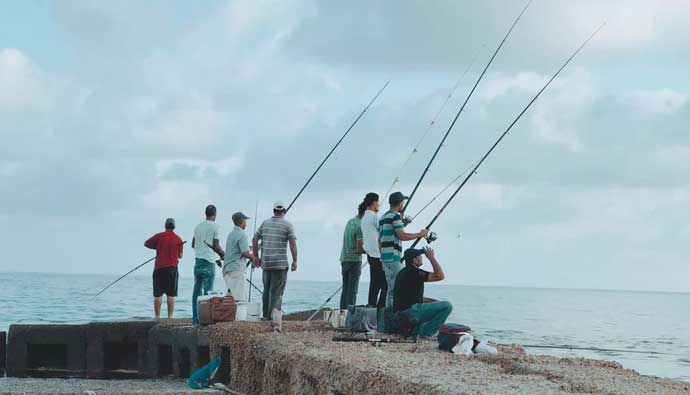
First, make sure you rinse off your reel after each day out on the water to remove as much salt and sand from the moving parts. Sometimes you’ll need to remove the spool to get into the hard-to-reach places.
For a Deeper Cleaning
- Tighten up your drag.
- Rinse your reel with water from the sink or hose without much force.
- Spray it down with a reel cleaner. I like using the Penn Rod & Reel Cleaner.
- Let the reel dry and loosen your drag.
Once that is done, you can put your reel back up for storage, and it will be ready the next time you go out fishing.
Frequently Asked Questions
What is the best spinning reel under $100?
The best spinning reel for under $100 would be the Penn Battle III or the Daiwa BG. They’re both workhorses and aren’t expensive.
What is the most accurate saltwater spinning reel?
The most accurate saltwater spinning reel is the one you’ve practiced with often. If you’re concerned about your line coming off the spool smoothly, make sure you’ve spooled it near the edge of the lip to reduce the friction as it comes off during your cast.




 Facebook
Facebook YouTube
YouTube